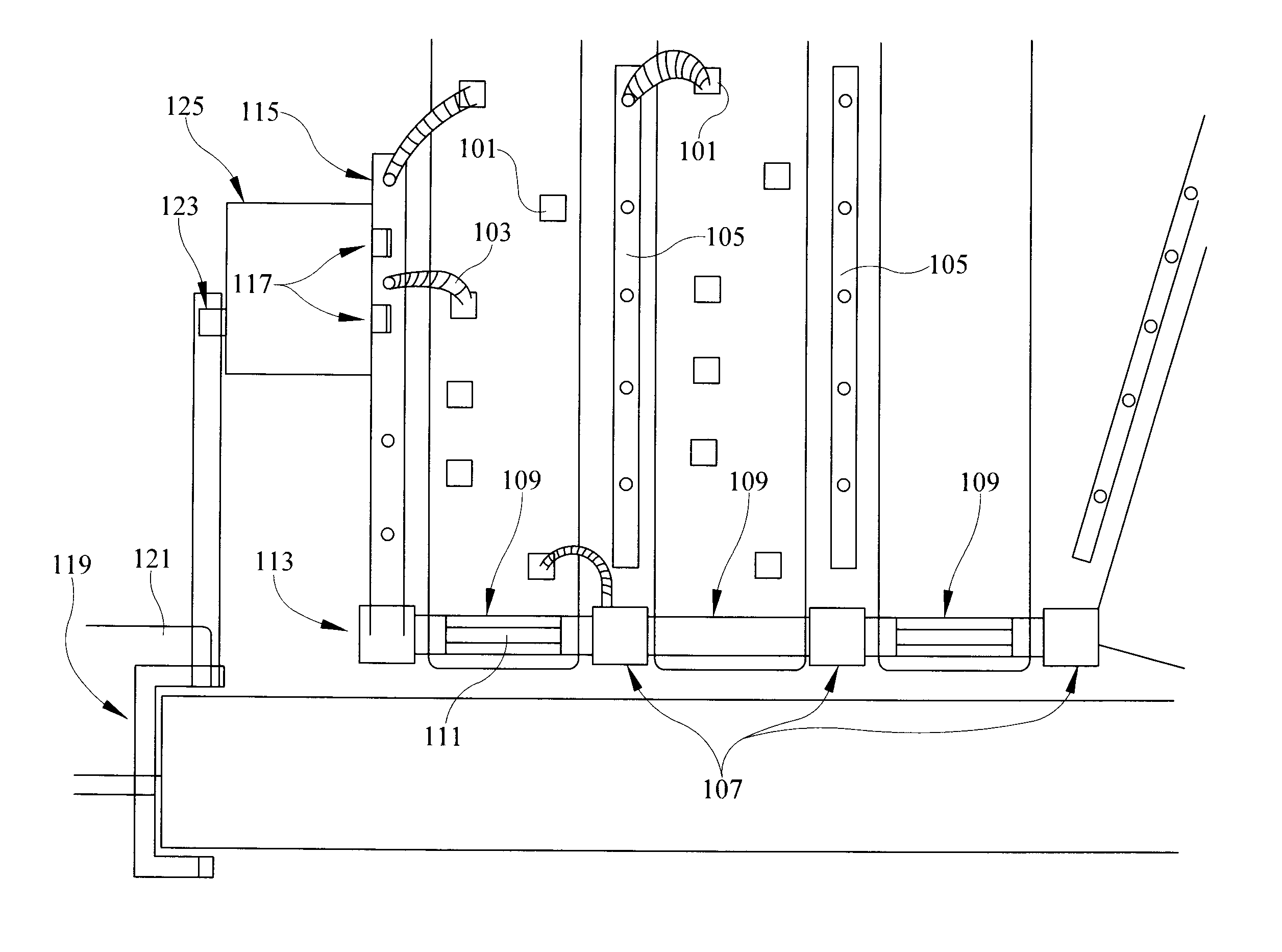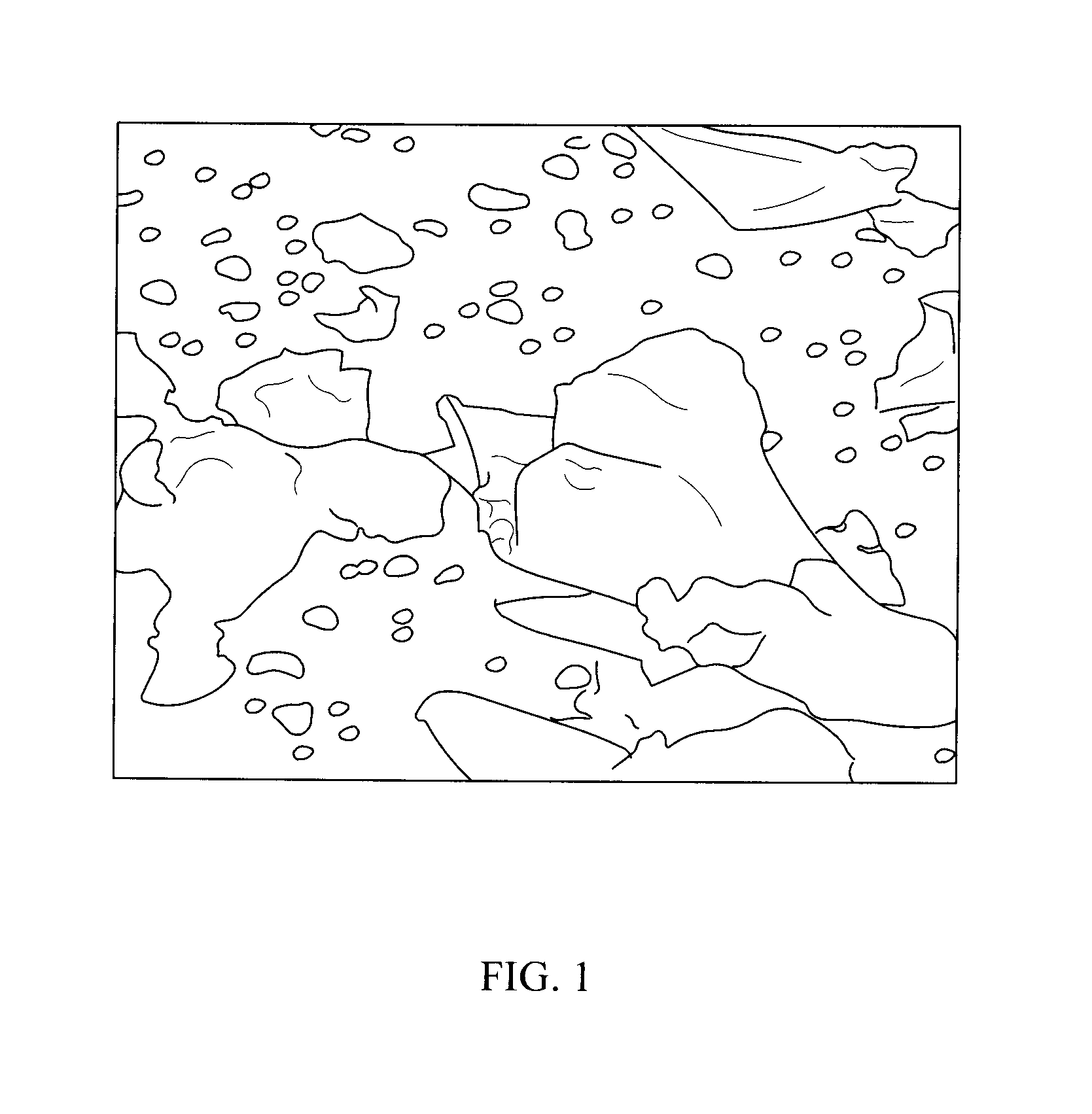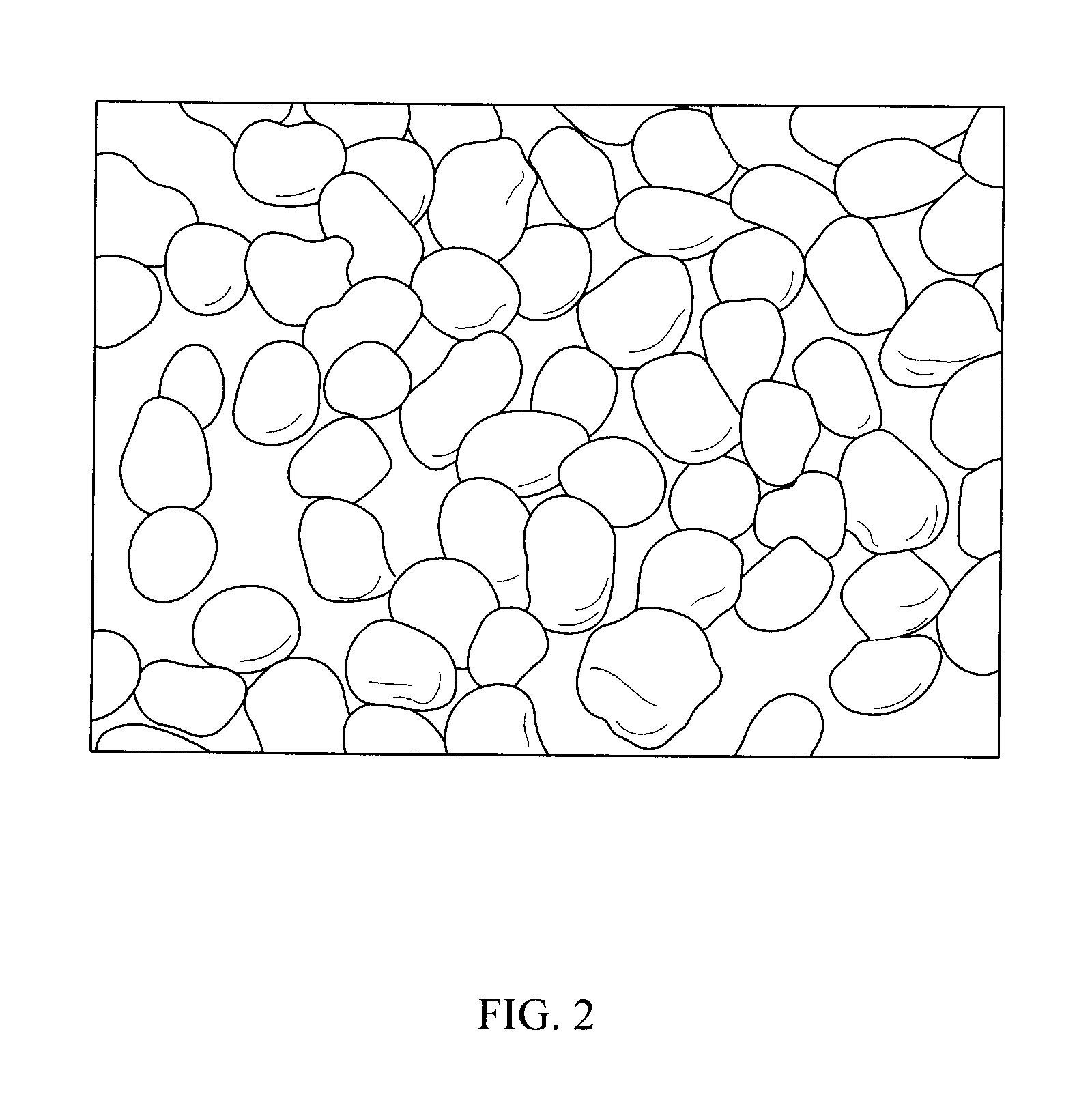Method of reducing silicosis caused by inhalation of silica-containing proppant, such as silica sand and resin-coated silica sand, and apparatus therefor
a technology of proppant and inhalation method, which is applied in the field of reducing silicosis caused by inhalation of silica-containing proppant, can solve the problems of potter's rot, lung disease known as silicosis, and nuisance to adjacent landowners, so as to reduce the exposure of workers, minimize the chances of workers, and minimize the effect of dust production
- Summary
- Abstract
- Description
- Claims
- Application Information
AI Technical Summary
Benefits of technology
Problems solved by technology
Method used
Image
Examples
Embodiment Construction
[0093]FIG. 1 shows a microscopic view of silica dust particles. These silica dust particles can become lodged in the lungs of a person who inhales the silica dust. Exposure to silica dust may lead to silicosis, a form of pneumoconiosis. FIGS. 2 and 3 show examples of proppant grains. FIG. 5 shows a human lung affected by silicosis. As can be easily seen, the lung is darkened and damaged by the presence of the silica dust particles.
[0094]FIG. 6 shows a cross-sectional end view of a portion of the body of a proppant storage device 1 according to at least one embodiment of the application. While the storage device 1 is being filled with proppant, the doors 3, which are shown in FIG. 6 as being closed, may be opened to allow air to vent through outlets 4 and to allow workers to monitor the fill level of proppant in the storage device 1. The exiting air and the feeding of the proppant disturb the proppant, causing the formation of dust clouds which exit via the outlets 4, regardless of w...
PUM
| Property | Measurement | Unit |
|---|---|---|
| weight | aaaaa | aaaaa |
| height | aaaaa | aaaaa |
| width | aaaaa | aaaaa |
Abstract
Description
Claims
Application Information
 Login to View More
Login to View More - R&D
- Intellectual Property
- Life Sciences
- Materials
- Tech Scout
- Unparalleled Data Quality
- Higher Quality Content
- 60% Fewer Hallucinations
Browse by: Latest US Patents, China's latest patents, Technical Efficacy Thesaurus, Application Domain, Technology Topic, Popular Technical Reports.
© 2025 PatSnap. All rights reserved.Legal|Privacy policy|Modern Slavery Act Transparency Statement|Sitemap|About US| Contact US: help@patsnap.com



